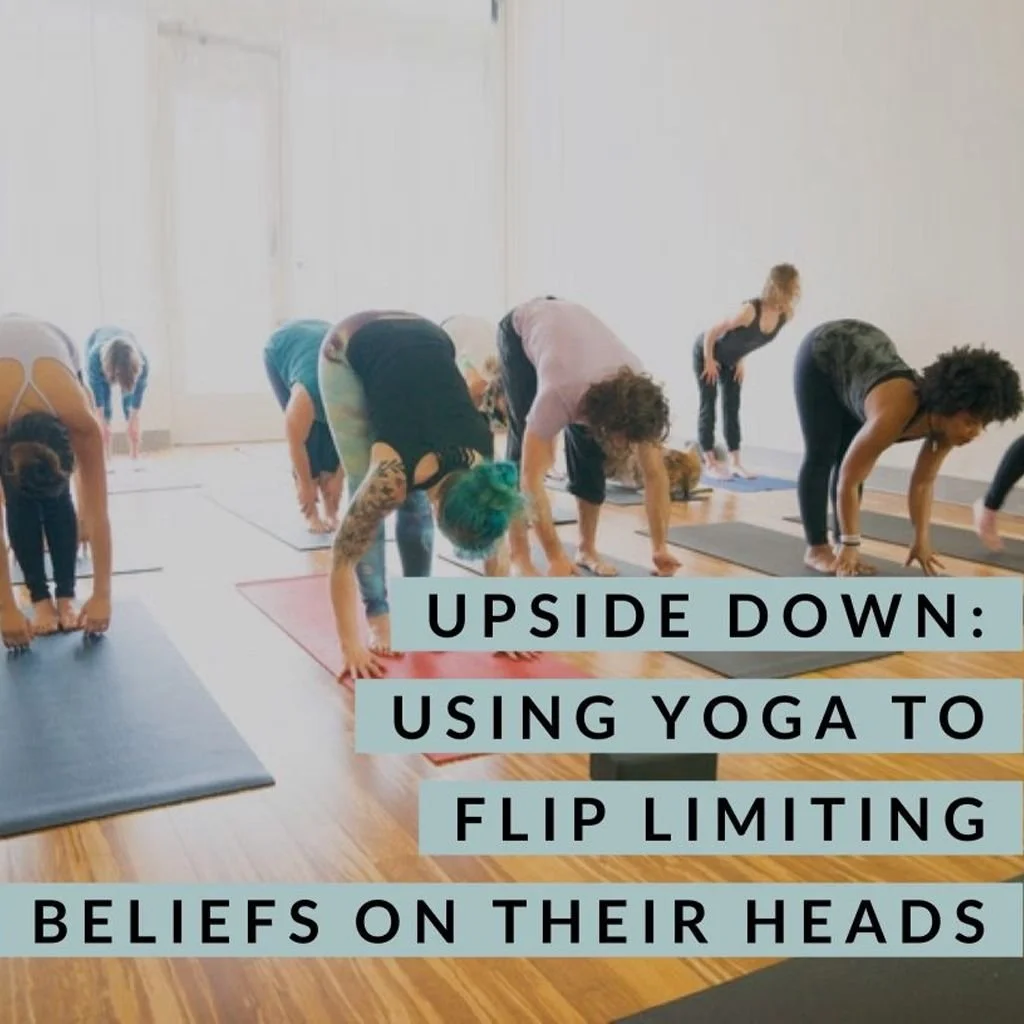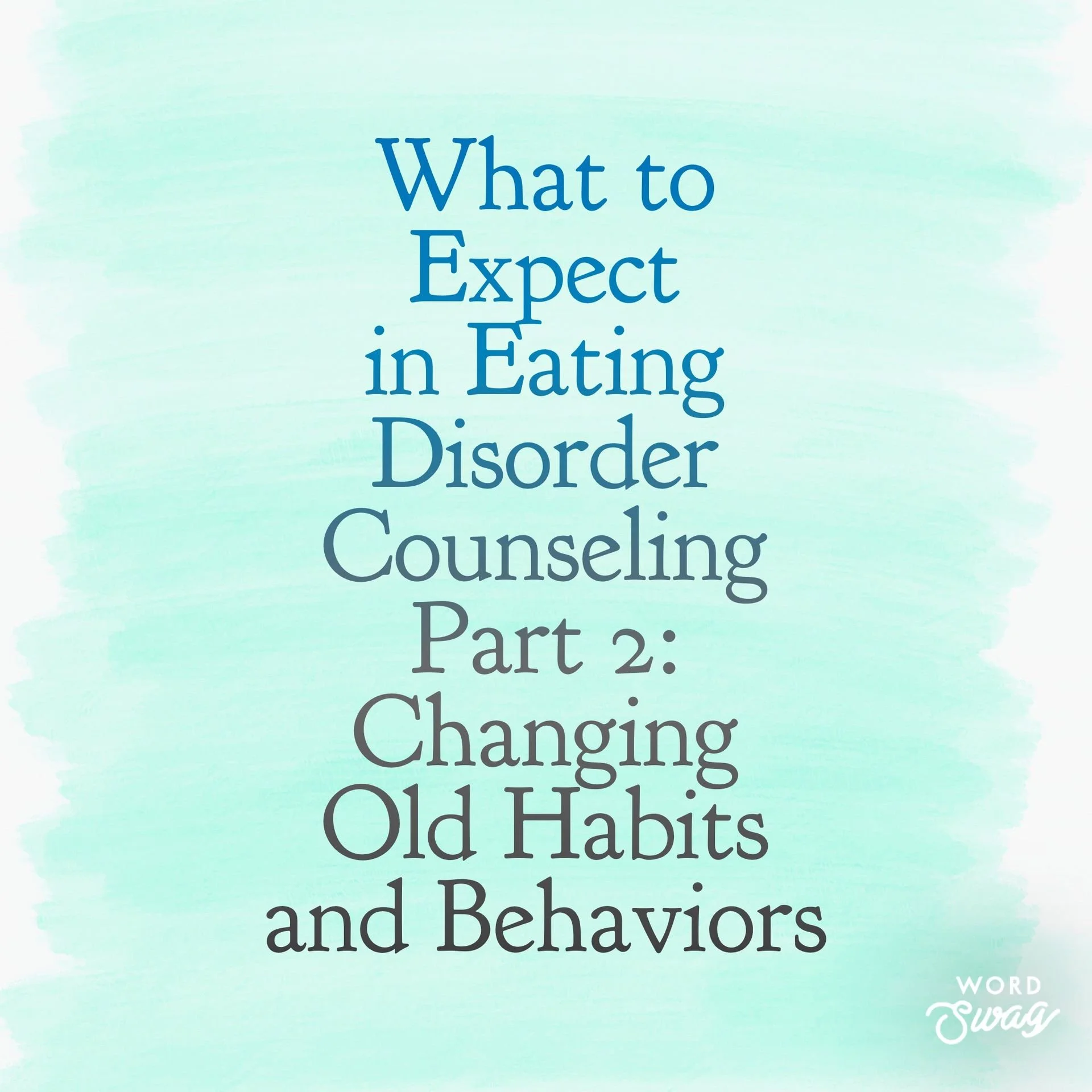
Blog:
Eating Disorder and Anxiety Therapy in Plano, Texas
BREATHING TO MANAGE ANXIETY
These days, I end up talking about anxiety management with every client I have, regardless of why they are seeing me. They don't always call it anxiety; sometimes they say it's "stress." Or sometimes they don't name it at all, they just tell me about how they're "not doing well" and I have to pull out the details about their anxiety symptoms. I teach everyone about breathing to manage anxiety and stress because when stressed, breathing is one of the first things impacted.
REDUCE ANXIETY BY IMPROVING COMMUNICATION SKILLS
In my last post, I wrote about the recent challenges my therapy clients in Plano, TX have faced with their partners. I shared general communication approaches and mindset shifts proven to help strengthen relationships. In this post we explore how to improve communication, and how this can improve symptoms of anxiety and eating disorders. Get ready to learn how to stop avoiding hard topics!
COUNSELING IN PLANO: TIPS FOR COMMUNICATING YOUR NEEDS
As someone who offers counseling in Plano, TX, I’ve witnessed my clients struggling with the usual suspects of anxiety, depression, body image problems, and disordered eating during the past several months. But they also find themselves arguing more with loved ones. Most of my clients who are in relationships didn’t expect to be spending this much time together until they retired! And most of the time, they talk about what a gift this is.
WHY SHOULD I WORK ON MY BODY IMAGE IN EATING DISORDER COUNSELING?
The last time you walked by a mirror, did you avoid looking into it? Can you easily list off your body's flaws? Do you often compare yourself to others?
If any of these felt familiar, you might have poor or distorted body image. "Body image is how you see yourself when you look in the mirror or when you picture yourself in your mind. It encompasses:
A COUNSELOR'S THOUGHTS ABOUT LETTING GO
I'm a counselor in Plano, Tx. I am a mom, a wife, and a friend who is living through a global pandemic AND I am helping others.
I have this unique perspective as a therapist to be experiencing this global trauma, and a first responder, helping people move through it with more ease.
And, what I notice is that the things that have helped me and my clients thrive during Covid-19, require that I’m letting go of other things and other ideas.
WHAT I WANT TO KEEP TO MANAGE MY OWN ANXIETY
A friend observed recently that I “seem to be thriving” during this crazy time- it’s been over 2 months since Covid-19 hit. I’ve been working (as a therapist specializing in anxiety and eating disorders) and helping my 3 kids with the online school fiasco, all the while attempting to keep a lid on my own anxiety about how much anxiety is ok to have right now. I do acknowledge my privilege. I still have a job and have the means to provide for myself and kids. Others have not had that same experience, I know.
UNDERSTANDING ANXIETY
According to the Anxiety and Depression Association of America, anxiety disorders are the most common mental health diagnosis in adults in the U.S. They are on the rise in both children and adults in recent years, yet the majority of folks suffering go without treatment. Fortunately, these problems are very treatable! This post helps you to understand anxiety better, which is a great first step in overcoming it.
EMOTIONAL EATING IN STRESSFUL TIMES
Are you beating yourself up for overeating during the coronavirus quarantine? Having a hard time sticking to a “healthy” eating plan? Worried that your emotional eating has gotten out of hand? Stressed out that your eating disorder recovery has slipped? IT’S OKAY!!! What we need more than ever right now is acceptance and self-compassion. These are important all the time, for all of us. But particularly in times of stress. Particularly for those who struggle with eating disorders and body image distress.
BEING GENTLE WITH YOURSELF WHEN THE WORLD IS UPSIDE DOWN
You are doing an amazing job. Yes, YOU. You reading this blog. The you who hasn’t showered in a couple days, but still puts on a professional top for video meetings. The you who abandoned the color-coded home-school schedule after the 50th “Moooommm… I’m hungry!” (So on Day 2, basically.) The events of the past month have thrown off our routines, but also presented us with an opportunity to expect perfection of ourselves in all new ways. I think it’s time we all started being a little nicer to ourselves.
COPING WITH STRESS AND ANXIETY DURING COVID
Well, it’s been a weird few weeks. My husband and 3 kids and I went on vacation with friends for spring break. We returned home to closed schools and empty grocery store shelves. Coronavirus, the now global pandemic, has forced us to isolate in our homes to slow the spread of this killer with no cure. Yes, stress and anxiety have arrived at our home. Yes, I offer stress and anxiety counseling for my job. I have to take my own advice now more than ever before.
HEALTH AT ANY SIZE? DIETING DOESN'T WORK, SO REPLACE IT WITH THIS NEW TECHNIQUE
It's month six of your new diet, and the plateau hit last week. Until then, you'd been working hard, eating right and steadily losing weight. And since then, you've been trying harder than ever, but the scale stubbornly refuses to move by a single pound.
The last two times you tried dieting, the same thing happened. And pound by pound, inch by inch, the weight came back, despite your best efforts.
What went wrong, yet again?
Using Social Media to Support Eating Disorder Recovery
As an eating disorder counselor in Plano, Texas I hear a lot about juice cleanses, intermittent fasting, and other “miracle” wellness trends. My experience is that trying these methods usually makes people feel worse, and isn’t sustainable in the long run. This is especially true for people who struggle with eating disorders because they are battling more than just willpower and knowing the “right” foods to eat.
Stop Binge Eating Using Interpersonal Effectiveness Skills
Do you ever wish you could press pause during an awkward conversation while you figure out what to say? Or maybe you’d love it if you could stay home and let your body go to the doctor without you, so you wouldn’t have to listen to yet another lecture about your weight and struggle to find a way to respond. Learning to improve social interactions can benefit everyone, but if you struggle with binge eating or overeating, interpersonal situations often present more of a challenge.
Stop Binge Eating Using Mindfulness Skills
Mindfulness is very trendy at the moment, but it’s not a fleeting fad, like superfoods or Jazzercise. Buddhists have been practicing mindfulness for eons, and therapists have been prescribing it for decades. Mindfulness is here to stay because it works. Especially in our current world with its endless distractions of technology and increasing demands on our work and personal lives. While more research is needed, studies suggest mindfulness can improve both physical and mental health, particularly problems with binge eating.
Stop Binge Eating Using Emotion Regulation Skills
Do you ever feel like things are harder for you than others? You see colleagues and friends taking stressful moments in stride with a quick meditation or a walk around the block. Meanwhile, you’re still upset about a comment someone made last week. Maybe you’re starting to wonder if you missed that day of school when everyone learned to magically move on from things. What do you do when the coping skills that work for others don’t seem to be helping you the same way, especially if you struggle with binge eating?
Distress Tolerance Skills to Stop Binge Eating
When you’re trying to stop overeating, every night can look like one of those cartoons with the angel on one shoulder and the devil on the other:
“Come on … it’s been a long day and you deserve a treat!”
“Now, be reasonable. You’re trying to fit into your dress for the reunion.”
“You already messed up the week by eating all those cookies last night. You may as well finish the box so that it isn’t there to tempt you.”
“Yes, but you know you don’t feel good when you overeat. Go for a walk!”
Sound familiar …?
Upside Down: Using Yoga in Eating Disorder Recovery to Flip Limiting Beliefs on their Heads
“Welcome to class everyone . . . Except for you in the back, because you’re the wrong size and shape to be in yoga . . . Take a few deeeeeep breaths and notice how much better the woman next to you is at Downward Facing Dog . . . And then also make sure that you feel some intense shame about this thought . . . because yoga is supposed to be about accepting where you are, and not focusing on comparing. So try to get it right . . . for once . . .”
Sounds ridiculous, no?
How a Peloton Instructor Inspired a One-Woman Revolution in an Eating Disorder Therapist
As an eating disorder therapist I see firsthand the impact of the diet culture and the negative messages that are aimed at our bodies. I know the research well about how nourishing our bodies with food and physical activity is being constantly corrupted into a message full of shame and fear.
What to Expect in Eating Disorder Counseling Part 3: Maintaining Progress
In Part 1 of this blog series, I outlined what is involved in the beginning phase of eating disorder counseling. Part 2 demonstrated how therapy can help you change the behaviors that maintain eating disorders. In this blog I explain how we work together to deepen recovery work for long-lasting success.
What to Expect in Eating Disorder Counseling Part 2: Changing Old Habits and Behaviors
In Part 1 of this series, we reviewed the basics of the beginning phase of eating disorder therapy. Here I delve into the next phase: how do we actually change what we do on a daily basis and create new patterns and habits?




















